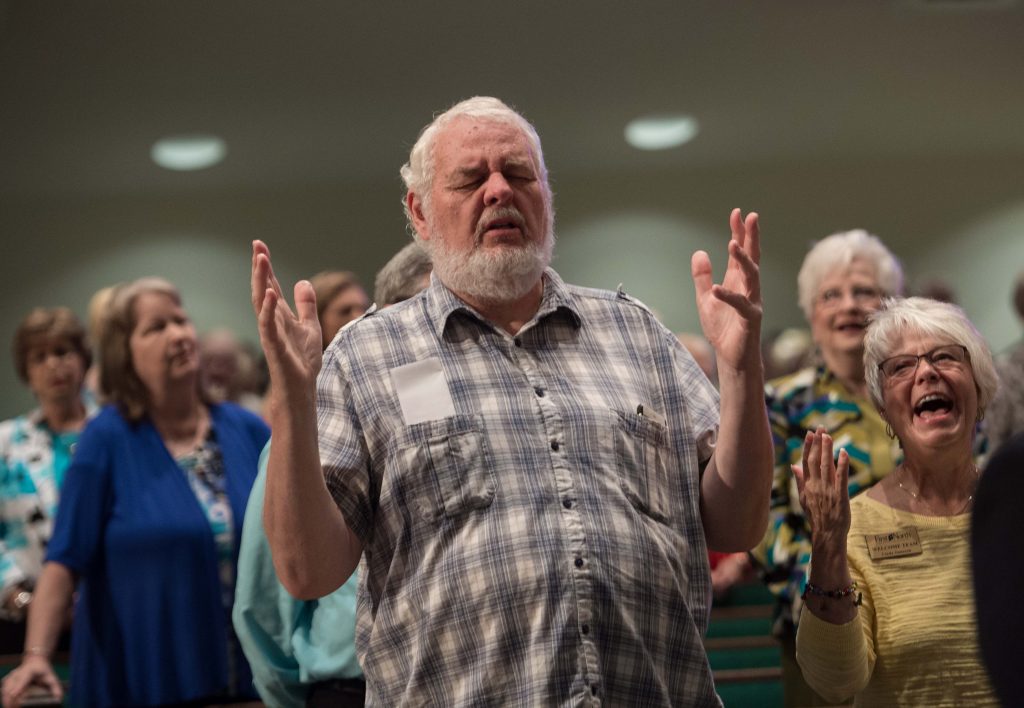(THIS ARTICLE IS MACHINE TRANSLATED by Google from Norwegian)
Donald Trump is probably the most unlikely Republican presidential candidate to achieve anything near the greatest evangelical support ever. But that's how it was at the presidential election in 2016. Well over eight in ten of these deeply conservative Christian voters preferred Trump, despite the fact that his morals in this segment must be regarded as strongly tarnished. He is divorced twice, vulgar in his statements and unjustifiable, and it all blends poorly with the so-called value-pickers' view of life.
And now that Trump is more than halfway through his first – and hopefully last, many would-be term – in the White House, the evangelicals continue to linger. They are by far the largest group in the Republican Party, and they must be regarded as his real power base.
Well over eight in ten of deeply conservative Christian voters preferred
Trump at the presidential election in 2016.
The coalition between the evangelicals and the Republicans is of old date. Therefore, it is an important key to understanding the phenomenon of Trump, and an explanation for why he retains such a relatively large voter turnout, despite dramatically contrasting with a whole range of the party's classic values.
It is a contradiction of dimensions, which has now been taken up for thorough analysis in an anthology entitled The Evangelical Crackup?. Here, a number of scientists give their very different explanations of the phenomenon of Trump, and thus we also get a number of qualified suggestions as to why the world could easily risk seeing him for another period in the White House.
Conservative direction
In essence, an essay in the book describes how the evangelicals have driven the Republican Party in a conservative direction. They belong to churches that require a great deal of personal commitment, and because activism on a personal level takes up a lot of American politics, with primary elections, etc., they are also easier to engage in an election campaign. As a result, their often extreme views on abortion and homosexuality have become disproportionately important, as has their ingrained aversion to environmental policy and similar penchant for militant foreign policy. They have come to set the agenda in the party, which is why we saw presidential candidates like Mitt Romney and John McCain speak their language, even if they themselves had no evangelical background.
So did Trump. As a candidate, he set out to support gay views, as well as supporting the Planned Parenthood organization. But in the usual style, he turned 180 degrees and took the opposite views, which was crucial for defeating candidates like Ted Cruz and Ben Carson, who both have strong evangelical roots.

Political motives
It is therefore important to understand the political motives of the evangelicals. One of the book's editors, Ryan L. Claassen, who is a professor of political science at Kent State University in Ohio, argues in his essay that it is too narrow to look at moral branding. It is true that the Supreme Court order in 1973, which made it illegal to deny a woman an abortion, caused many abortion opponents to seek refuge in the Republican Party. But Claassen finds a better explanation by comparing Trump to Alabama Governor George Wallace, who in the election of 1968 garnered many votes on a strong message of racial segregation. This case is significantly older than the abortion debate, and it still runs very deep in the 11 southern states, where 50 percent of white, evangelical voters live. In recent times, though, lawmakers and the judiciary have done much to combat racism at the formal level. But economic crisis and unemployment, a number of significant cases of police violence against African Americans and, not least, recent refugee flows have got evangelical activists on the field, and with quintessential opportunism, Trump was quick to seize the opportunity.
So have the evangelicals lost their minds, as the book's title suggests?
The answer is no
However, it is a population that has changed. At the beginning of the 20. century, the evangelical groups typically lived in poor rural areas, but over a wide ridge they became more affluent. With this comes a greater surplus to political engagement. But it has also meant that the evangelical groups have spread to the whole country, constituting an ever larger percentage of the total Christian population, and all this has led to a diversification of political branding.
Thus, the anti-abortion case does not have the same clout in every respect in the evangelical world, and the same applies to other moral issues. Racial politics is also found in several shades, but it is far more of a rallying point, and that is what instills confidence in Trump, despite his many moral deficiencies. Several places in the book conclude, therefore, that the coalition between the evangelicals and the Republicans is as solid as it has ever been. There are no signs of a break-up, and Trump being the right man in the right place in this world for a variety of reasons also means that he can count on the unbreakable loyalty of a highly motivated population, on re-election. If it is up to the evangelicals!






